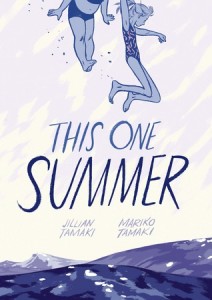 Now more than ever before, comics are an indispensable component of many public libraries’ collections. A decade or two ago they might have been treated as ephemera, but today they are often curated with the same level of care as other formats. As a recent article from Publishers Weekly showed, this boom is mutually beneficial for both comics and libraries but also presents a few new obstacles–including an increase in book challenges from members of the public.
Now more than ever before, comics are an indispensable component of many public libraries’ collections. A decade or two ago they might have been treated as ephemera, but today they are often curated with the same level of care as other formats. As a recent article from Publishers Weekly showed, this boom is mutually beneficial for both comics and libraries but also presents a few new obstacles–including an increase in book challenges from members of the public.
Publishers Weekly’s Heidi MacDonald spoke to Carol Tilley, the University of Illinois associate professor of Library and Information Science who definitively proved that Fredric Wertham fabricated evidence to support his crusade against comics in the 1950s. Even to this day, Tilley observes, many readers might tolerate written descriptions of violence, sexuality, or other intense topics, “but adding the pictures is still really scary for a lot of folks.”
MacDonald provides an overview of major recent challenges to comics in libraries, including This One Summer by Jillian and Mariko Tamaki, Drama by Raina Telgemeier, and Big Hard Sex Criminals by Matt Fraction and Chip Zdarsky, all of which appeared on the American Library Association’s most recent list of the Top Ten Frequently Banned and Challenged Books.
Each of these has run into trouble for slightly different reasons: This One Summer was in some cases misidentified as an all-ages book because it received a Caldecott Honor, while Drama has been challenged in several school libraries because some parents object to a completely chaste same-sex crush in the book. Big Hard Sex Criminals was challenged in an unidentified library despite being properly shelved in the adult section–leading James Larue, director of ALA’s Office for Intellectual Freedom, to suspect that some parents may have been in for a surprise after assuming that “a book in the comics format is aimed at kids, even when it clearly isn’t.”
With library funding in peril, Tilley expressed concern that comics might still be more at risk than other collection areas:
It may be easier in some instances to say no to comics because they seem more frivolous…It’s going to be important for librarians to figure out how comics are working in their communities. We may have to start doing more justifying.
To aid in that task, CBLDF offers an ongoing collection of resources for librarians and educators looking to support their selection of specific frequently challenged graphic novels. The Adding Graphic Novels to Your Library or Classroom Collection series, which brings together synopses, reviews, best-of lists, and publisher recommendations, began with This One Summer after we saw an abrupt increase in challenges to that title early in 2015.
Other obstacles to comics in libraries include difficulties providing access to digital comics–increasingly overcome by the expanded selection now available through the Hoopla platform, although it still lacks any books from Marvel–and to webcomics. Even when a popular webcomic does make the jump to print, it’s often self-published or issued by a small press whose books don’t usually appear in major review sources, a selection requirement in many libraries’ policies. In that case too, librarians and creators are finding workarounds: librarian and No Flying No Tights editor-in-chief Robin Brenner bought a copy of Ngozi Ukazu’s Check, Please! Year One with her own money and donated it to her library, while Valor creator Isabelle Melançon included donated copies for libraries as a stretch goal in the book’s Kickstarter.
Ultimately, all of these obstacles for comics in libraries result from their popularity with patrons of all ages–a good problem to have. As long as librarians continue to defend intellectual freedom principles and develop innovative solutions to adapt to new modes of publishing and distribution, these bumps in the road can easily be overcome. Check out the full article from Publishers Weekly here.
Help support CBLDF’s important First Amendment work in 2017 by visiting the Rewards Zone, making a donation, or becoming a member of CBLDF!
Contributing Editor Maren Williams is a reference librarian who enjoys free speech and rescue dogs.